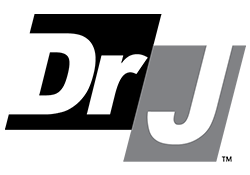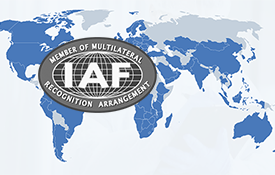DrJ simplifies the code compliance process for innovators and is the only ANAB Accredited Third Party Certification Body to stand behind certifications with a PE seal.
Verification Process
An approved agency is “approved” when it is 17065 accredited by a recognized accreditation body of the International Accreditation Forum (IAF). ANAB lists accredited firms in their directory, which include DrJ. Each accredited firm is qualified to practice within their specified areas of expertise, also known as accredited scopes.
The IAF website states: “Once an accreditation body is a signatory of the IAF MLA, it is required to recognise certificates and validation and verification statements issued by conformity assessment bodies accredited by all other signatories of the IAF MLA, with the appropriate scope.”
Research Reports, Duly Authenticated Reports and 17065 Reports are defined as supporting data, where necessary to assist in the approval of products, materials, or assemblies not specifically provided for in this code and prepared by approved sources.
An approved source is defined as an independent person, firm, or corporation, who is competent and experienced in the application of engineering principles to materials, methods, or systems analyses, and is registered or licensed to practice their respective design profession as defined by the statutory requirements of the professional registration laws of the state or jurisdiction in which the project is to be constructed.
An approved source is “approved” when a professional engineer (i.e., Registered Design Professional (RDP)) is properly licensed to transact engineering commerce. The regulatory authority governing approved sources is the state legislature via its professional engineering regulations.**
To find licensed professional engineers and pertinent professional engineering laws, please visit the NSPE website. The regulatory authority governing approved sources is the state legislature via its professional engineering and professional architect regulations. Commercial and professional engineering laws affirm that the RDP has the ability to undertake commerce applying engineering principles in their area of expertise without restraint or discrimination. Ohio has set legal precedent with respect to approved source approval.
As Ohio defines, the sole legal authority to restrain the commerce of an RDP is the pertinent licensing-board. Should anyone believe that a professional engineer or architect is not performing service in his or her area of expertise or are not competent, evidence needs to be brought before the proper board. These rules are in place so that the severe penalties of Title 18, USC, Section 242 do not apply.
Code Acceptance for New Products
Building codes require that the building official shall accept duly authenticated reports or research reports from approved agencies and/or approved sources, including licensed RDPs, with respect to the quality and manner of use of new products, materials, designs, services, assemblies, or methods of construction, as long as the work performed is within the firm's scope of expertise.
Title 18 US Section 242, affirms and regulates the right of individuals and businesses to, freely and fairly, have new products, materials, designs, services, assemblies, and/or methods of construction approved for use in commerce. Disapproval of alternatives shall be based upon non-conformance with respect to specific provisions of adopted legislation. Any non-conformance shall be provided in writing stating the reasons why the alternative was not approved, with reference to the specific legislation violated. Denial without written reason deprives a protected right of competition in the marketplace and may be viewed as discrimination.
Certified Once, Approved Everywhere
International
Accreditation Forum
Once an accreditation body is a signatory of the IAF MLA, it is required to recognise certificates and validation and verification statements issued by conformity assessment bodies accredited by all other signatories of the IAF MLA, with the appropriate scope.
Recognized
Accreditation Body
ANAB is recognized as an Accreditation Body (AB) by the International Accreditation Forum.
ANAB Accredited Third Party Certification Body

DrJ is ANAB 17065 certified, where it is professionally qualified to practice product and regulatory compliance services within our Accredited Scope of Expertise.
Related Links
Endnotes:
*Approved source. An independent person, firm or corporation, approved by the building official, who is competent and experienced in the application of engineering principles to materials, methods, or systems analyses, which is a professional engineer. To find licensed professional engineers please see this website: https://www.nspe.org/resources/licensure/licensing-boards. An approved source is “approved” when a professional engineer (i.e., Registered Design Professional [RDP]) is properly licensed to transact engineering commerce. The regulatory authority governing approved sources is the state legislature via its professional engineering regulations. Commercial and professional engineering laws affirm that the RDP has the ability to undertake commerce applying engineering principles in their area of expertise without restraint or discrimination. Ohio has set legal precedent.
**https://www.nspe.org/resources/issues-and-advocacy/professional-policies-and-position-statements/regulation-professional AND https://apassociation.org/list-of-engineering-boards-in-each-state-archive/




